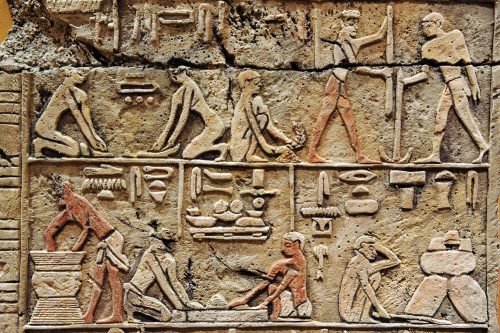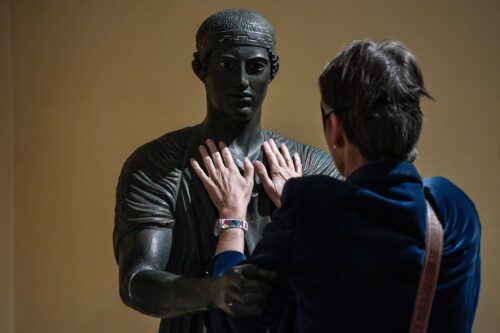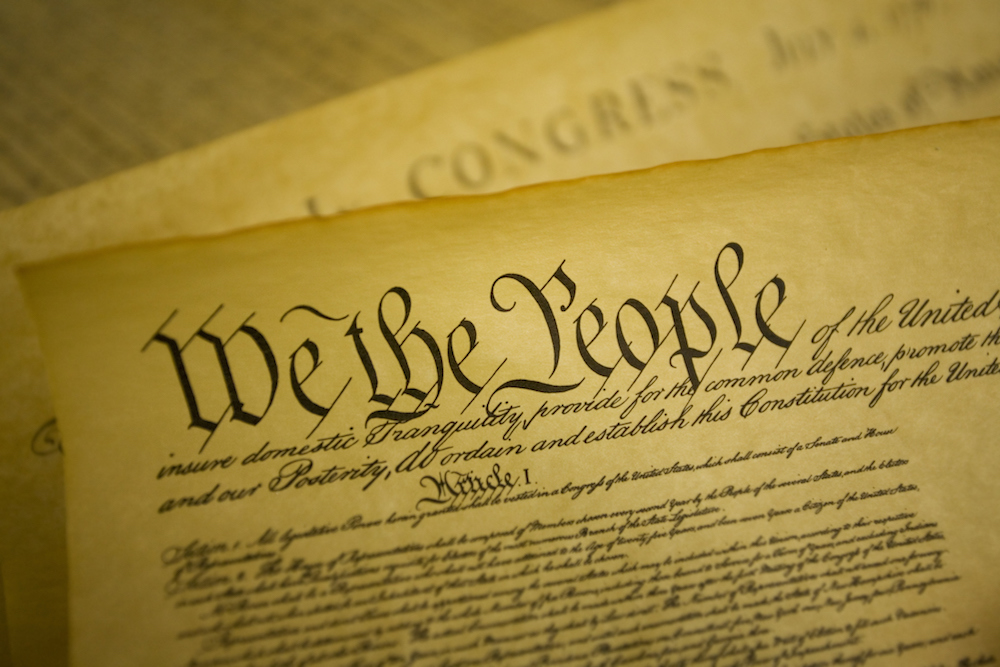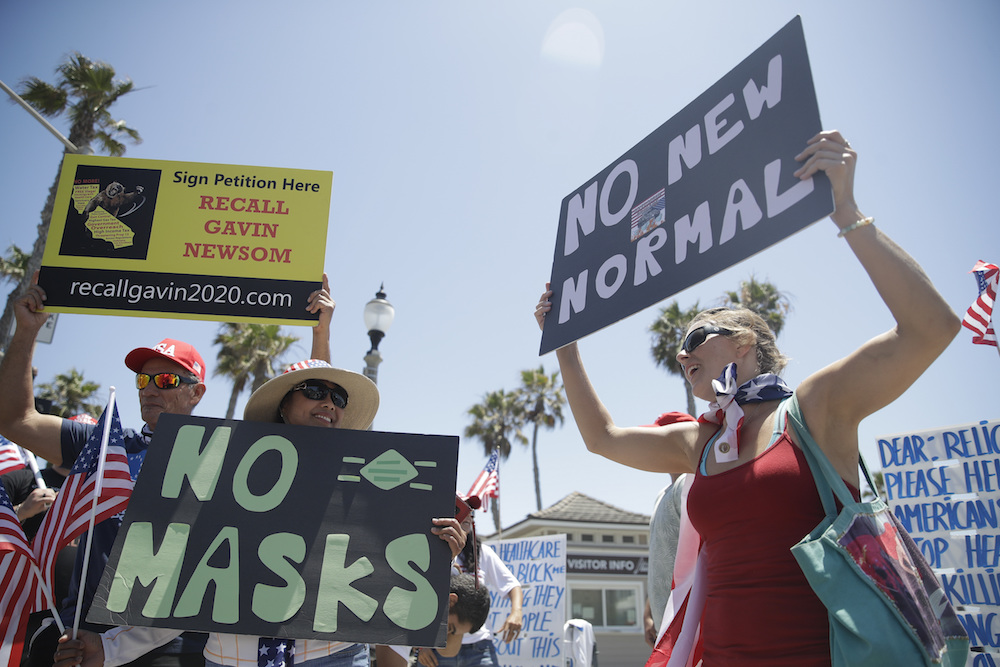Without Norms, Societies Fall Apart
From time to time, I meet an American who likes to tell me that the United Kingdom, the country of my birth, has a weaker democracy than the United States because it has no written constitution.
A written constitution, they tell me, spells out in black and white the terms of the social contract and imposes clear limits on political leaders who would take liberties with the liberties of their citizens. They worry that a nation such as the U.K., which relies on unwritten “norms” and “traditions,” lacks institutional mechanisms to hold rogue leaders in check or to prevent a government from changing the underlying rules of the game.
Recent events in American politics—the failed impeachment of President Donald Trump, then Trump’s attempts to undo an election he lost—cast a harsh light on such claims. They also dramatize the limitations of the “originalist” beliefs embraced by Justice Amy Coney Barrett and at least two other justices on the U.S. Supreme Court. “Originalists” say that conservative judges should rule based on the original meaning of the Constitution as a text, but this is to ignore the vital importance of norms in making such meaning clear.
Norms matter. Everything we do—buying food at the store, driving to work without crashing into people, electing a president—is made possible by norms, or shared ideas about what constitutes appropriate social behavior. The founding mothers and fathers of anthropology, under the influence of the French social theorist Émile Durkheim, thought of culture as a set of norms. In their ethnographies, they would tell readers: Here are the local norms for getting married, inheriting wealth, resolving disputes, eating a meal, and so on.
Anthropologists today, often focused on points of cultural friction, are more skeptical of defining culture in terms of norms. But they still recognize, as Durkheim did, that society would fall apart without them.
To show the overwhelming importance of norms, let’s begin by discussing impeachment. The U.S. Constitution says that a president can be impeached before the Senate by the House of Representatives, with a two-thirds majority required for impeachment to succeed. That is all clear-cut.
Less clear-cut are what acts merit impeachment. Article II, Section 4 of the Constitution says the president can be impeached for “treason, bribery, or other high crimes and misdemeanors.” The Founding Fathers did not draw up a long list of actions that would have constituted treason or corruption, so we cannot know whether their list of acts of treason would have included withholding government aid to pressure a foreign head of state to smear the president’s main political rival. Similarly, we don’t know if the president insisting that the government pay his private hotel business each time he stayed at his own hotel chain would have constituted an act of corruption.
Given the difficulty of foreseeing every wrong a president might commit, and the danger that anything not specified would therefore be seen as permissible, the Founding Fathers were probably wise to leave it to future politicians to determine the precise meaning of such terms as “treason,” “corruption,” and “high crimes and misdemeanors.”
However, this leaves the U.S. in a situation where the impeachability of a president is ultimately determined by collective norms, not by the stipulations of a legal code.
In 1974, a group of Republican senators visited then-President Richard Nixon in the White House and told him he should resign, or else he would be removed by the Senate. According to most historians and older pundits (those with a memory that reaches into the previous century), many of those same Republican senators would probably have determined that Trump’s behavior—his solicitation of foreign interference in U.S. domestic affairs and his calculated attempts to obstruct justice—crossed the line into impeachable behavior. However, in 2019–2020 only one Republican senator voted yea on impeachment.
In less than half a century, norms around the impeachability of a president had shifted—or, rather, fragmented, since Democratic and Republican politicians were deeply divided over the matter. It was these unwritten norms, not the written Constitution, that determined Trump’s fate.
The Trump campaign’s machinations to undermine the results of the 2020 presidential election offer a variation on these themes. U.S. constitutional law provides a number of mechanisms for dealing with scenarios where the outcome of an election is in doubt. These include recourse to the courts to police local officials’ conduct of elections, the ability of state legislatures to appoint slates of electors in exceptional situations, and a provision for the House of Representatives to appoint electors if the normal system has deadlocked.
The law professor Richard Pildes refers to this provision for state legislatures to override the popular vote, not used since the mid-19th century, as something that “lies around like a loaded weapon.”
The net result of these attempts to make procedural provisions for any circumstance is a complex electoral machinery that, in theory, can be worked in more than one way. In practice, decades of presidential elections have normalized a routine whereby the popular vote in each state determines slates of electors who then, as a body of the whole, rubber-stamp the victory of the candidate with the most electors.
Everything we do—buying food at the store, driving to work without crashing into people, electing a president—is made possible by norms.
Democratic presidential nominee Joe Biden won a comfortable enough majority of electoral college votes and of votes cast in battleground states that, in any election in living memory, his victory would have been unproblematic. Not this time, however. Trump’s lawyers were able to exploit the complex legal provisions for exceptional situations to attempt multiple parallel maneuvers to overcome an otherwise clear electoral outcome.
Trump’s maneuvers included roughly 50 lawsuits and demands that the governor of Georgia and the speaker of the Pennsylvania House of Representatives convene special legislative sessions to reverse the official outcome of the elections in their states. In this he had the support, whether tacit or enthusiastic, of most Republican members of Congress, only 27 of whom were willing to publicly acknowledge Biden’s victory at the time of writing.
In the end, all that prevented Trump from using the machinery of law to steal an election was the adherence to traditional norms by judges, including Republican judges (all the way up to the Supreme Court), and by local officials such as Republican Brad Raffensperger, Georgia’s secretary of state, who followed custom and precedent by certifying the election results.
From these recent events I conclude three things.
First, constitutional literalists such as Judge Barrett are entranced by a chimera. Constitutional law either under-specifies its own interpretation (as in the case of the impeachment clause) or over-specifies remedial actions, thus creating ambiguity (as in the case of the electoral college). In either case, norms, not transparent written texts, ultimately determine the way through the maze. In other words, maybe there is not such a great difference between the U.S. and the U.K. after all. Norms always have the last word.
Second, given that British politicians are adhering to norms that both parties accept, even under the enormous stress of Brexit, I conclude that British democracy is clearly stronger than American democracy.
And third, norms can change or, worse, snap. Collective norms do evolve, pulling much of society along with them. Thus, in the lifetime of older Americans, a new norm has emerged, solidified by court rulings, that African Americans can eat in any restaurant and gay and lesbian Americans can live their lives in the open. But norms can also crack. The latter is happening in the U.S. political system; instead of a gradual collective evolution of norms, we see a situation of deep partisan rancor in which norms are in danger of becoming tactical options rather than guiding traditions or rules of the game.
If such a situation continues and worsens, democratic governance may become impossible. In the words of Michael Gerson, former President George W. Bush’s speechwriter: “Our institutions are not machines that automatically produce the common good. They depend for their survival and success on democratic values—on the constraint of power, not only by law but by convention and conscience.”
Whatever the form a constitution takes, written or unwritten, it is norms that make it work. They are the bloodstream of the body politic.
Correction: December 16, 2020
An earlier version of this article accidentally left out a paragraph before publication.


































